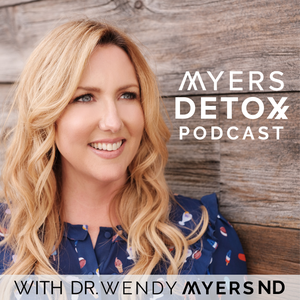
The Healthy Skin Show
Jennifer Fugo, CNS, MS, Skin Rash Expert
Alternative Ways To Break Up With Your Chronic Skin Rashes
- 39 minutes 15 seconds339: How Sensitive Are You?: Best Test For Food Allergy (IgE) Sensitivity w/ Dr. David Fitzhugh
If you’ve ever wondered the best way to test for food allergy sensitivity, this episode is for you!
What do I mean by food allergy sensitivity?
Many people think that you’re either allergic (and thus highly reactive) to specific foods or you’re not. And that’s not actually true as there’s a scale of reactivity or sensitivity that you could be on for IgE food allergies.
Making this even more complex is that your level of reactivity can change with time (this is especially true for children) which is why today’s episode is so important!
Food allergy testing isn’t perfect and can sometimes show false positives. Unfortunately, many practitioners (including many in the functional or integrative space) may recommend unnecessary elimination of foods that came back as a positive IgE reaction yet lacked any real-life reactivity.
Though it might seem harmless, it deserves to be repeated that unnecessary food eliminations can potentially lead to IgE food allergy reactivity if left out of your diet for too long.
Throw in chronic skin rashes like eczema, which increase the risk of food allergy (especially in children), and the question of what food is safe becomes increasingly confusing.
That’s why I wanted to bring in a food allergy immunotherapy specialist to talk about this important topic.
So if you’re wondering if skin tests are the gold standard, whether blood tests are accurate, and what the pros and cons are when trying oral food challenges or subcutaneous allergy shots, tune in to this fascinating episode with my guest, Dr. David Fitzhugh.
Dr. Fitzhugh is an allergist/immunologist in private practice in Chapel Hill, North Carolina.
He specializes in food immunotherapy for children and adults with severe food allergies but treats a wide variety of allergic and immunologic conditions, including allergic rhinitis, asthma, atopic dermatitis, mast cell disorders, and anaphylaxis.
In This Episode:- Options that test for food allergy
- Can positive serum IgE blood tests be wrong?
- Food sensitivity vs food allergy
- Benefits of doing oral food challenges
- What is more likely to trigger a reaction like food allergy hives: subcutaneous allergy shots or oral food challenges?
- Is it possible to tolerate (to some degree) something you’re allergic to?
- Oral food challenges dos and don’ts
- How to reduce your food allergy reactivity
- Sublingual versus oral immunotherapy
- Thoughts on elimination diets and food allergies
Quotes
“In our field, we consider someone sensitized who's test-positive to an IgE test. That could be a skin test or a blood test. So you are sensitized. But if you're test-positive and you eat the food routinely with no issue, you're not allergic, right? Allergic means a clinical syndrome of having an allergic reaction. And where we see this most commonly is the eczema kids.”
“...every allergist in North America is doing subcutaneous allergy shots. These are the typical allergy shots to desensitize people against hay fever, grass pollen, dust mite, et cetera. And we see a decent rate of really serious reactions that occur with those. And so every allergist needs to be prepared to manage an allergy shot reaction, sometimes requiring multiple rounds of epinephrine, IV fluid. Those don't happen commonly, but they do happen. But yet the dichotomy is, there's in many ways a reluctance to do oral food challenge because parents and/or providers are worried about the possibility of reaction. And the thing is with carefully selected food challenges, we have the luxury of knowing where most kids will tolerate, following the blood test to the skin test.”
Links
Find Dr. Fitzhugh online2 May 2024, 8:00 am - 40 minutes 17 seconds338: How to Stop The Pain of HS: Hidradenitis Suppurativa Treatment + Remedies w/ Dr. Steven Daveluy
Finding a hidradenitis suppurativa treatment that works can be frustrating and difficult, especially with certain symptoms like intense pain.
Hidradenitis suppurativa (HS) pain can severely impact your day to day quality of life — I speak from experience here!
When I first discovered a swollen, painful lump in my armpit, I panicked, and immediately worried about getting checked for breast cancer. Fortunately, the lump wasn’t cancer – it was hidradenitis suppurativa.
For me, laser hair removal was the key to stopping hidradenitis suppurativa symptoms in their tracks, but that’s not the case for everyone. Plus, laser hair removal isn’t always a permanent solution.
Because I personally know how awful this skin condition can be, I want to share more on what causes hidradenitis suppurativa pain, how the immune system and inflammation play a role here, as well as sharing some hidradenitis suppurative home remedies and other conventional treatment options.
Dr. Steven Daveluy is back to share more on HS! He is an associate professor and program director at Wayne State University in Detroit, Michigan, and holds special interests in teledermatology, noninvasive skin imaging, skin of color, integrative dermatology, and complex medical dermatology, including hidradenitis suppurativa (HS).
Dr. Daveluy serves on the board of the Hidradenitis Suppurativa Foundation. He serves on the editorial board for the JAAD and is building a growing body of publications of his own.
Let’s dive into this really important topic!
In This Episode:- What causes hidradenitis suppurativa (HS) pain?
- Hidradeniis suppurativa tunnels
- Immune response, cytokines + hidradenitis suppurativa symptoms
- New research bacteria found in the fluid + pus from HS lesions
- Stages of HS (hidradenitis suppurativa)
- Can HS surgery help with pain?
- Is laser hair removal a permanent hidradenitis suppurativa treatment?
- Hidradenitis suppurativa home remedies
- How to get help with pain management because of HS
- Medication options for hidradenitis suppurativa treatment
Quotes
“Even where you don't have lesions, your skin microbiome is still different than someone who doesn't have HS, which then sort of talks to this picture of HS isn't just something in your hair follicles, it's something that affects your whole body. And things are different in your gut, in your skin, in the skin that doesn't even have HS lesions. Things are just really out of balance.”
“...It's not to say that stage one can't be severely painful, but as a general trend, the more tissue damage you have, the more risk you have for the pain becoming more severe.”
Links
Find Dr. Daveluy on Instagram | Twitter
HS Foundation website
Healthy Skin Show ep. 103: Hidradenitis Suppurativa: The Tip That Stopped My Flares
Healthy Skin Show ep. 232: How Yeast + Zinc Can Play A Role In Hidradenitis Suppurativa w/ Steve Daveluy, MD25 April 2024, 8:00 am - 14 minutes 18 seconds337: New Research On Gut Trigger For Chronic Urticaria Hives (And What I See In Clients)
If you’ve found it frustrating that no one can tell you why you have chronic urticaria hives (including chronic spontaneous urticaria, dermatographia, and even angioedema), I feel you.
Especially when IgE allergies are ruled out (testing is negative) or even avoiding what you’re allergic to isn’t helpful. At that point, most doctors will say that there is no answer or clear trigger to what causes urticaria, basically leaving you with an increasing number of medications that may or may not help to control your skin.
To say that this leaves many like you feeling enormously helpless and hopeless is an understatement.
In my clinical practice, I’ve worked with many cases of chronic urticaria hives around the globe, helping to troubleshoot when doctors have all but given up in seeking an answer. Some cases have dated back decades, often having been seen at some of the most prestigious health institutions only to be told that there’s nothing to be done beyond antihistamines (which have their own problematic side effects) and biologics like Xolair.
I love helping people stop having hives and urticaria, especially since I get to explore the complex causes of chronic urticaria, which conventional medicine often ignores or assumes is impossible. So when new research starts pointing out connections to what I have seen in practice, I must share it!
If you missed my previous article on hidden causes of chronic urticaria, check it out here! This will help you see that what this new paper demonstrates is highlighting a big missing link to chronic spontaneous urticaria, hives, and other histamine-driven issues.
Before we dig into gut-chronic urticaria hives connection, I highly recommend that you download my Skin Rash Root Cause Finder. This is the exact method I’ve used with thousands of my private clients to help them discover what’s really causing their rash (and yes, this works for hives, dermatographia and angioedema issues) >> Get the easy-to-use Skin Rash Root Cause Finder.
In This Episode:- Chronic urticaria (hives) gut causes
- Problems with urticaria treatment options (even Xolair)
- Gut imbalances noted in chronic spontaneous urticaria (hives)
- What are lipopolysaccharides + short-chain fatty acids (and why are they important)?
- Key findings from new research on gut-skin connection (specifically for hives)
Quotes
“The incidence of true histamine intolerance is much lower than you’re led to believe and is based on old assumptions that need a serious update.”
“Nearly 50% of those living with urticaria experience depression and anxiety (especially when the flare-ups are severe).”
Links
Gut microbiota facilitate chronic spontaneous urticaria
Healthy Skin Show ep. 261: Chronic Hives: Why Aren’t They Going Away
Healthy Skin Show ep. 265: Problem with Antihistamines That No One Tells You w/ Dr. Chris Thompson, MD
Healthy Skin Show ep. 317: Itchy, Painful Rash From Thyroid Disease: Your Guide to Stopping It
Healthy Skin Show ep. 188: Histamine Intolerance + Skin Rashes (PART 1)18 April 2024, 8:00 am - 38 minutes 45 seconds336: Early Signs & Symptoms Of Psoriatic Arthritis (Don’t Ignore These!) w/ Dr. Jenny Bennett
If you have psoriasis, you have a 30% chance of developing psoriatic arthritis symptoms!
This type of psoriasis is notoriously difficult to diagnose because, unlike rheumatoid arthritis, there are no blood tests to easily confirm it.
Psoriatic arthritis can be triggered at any age, but its onset is most commonly between 35 and 55 years old. One of the early signs and symptoms of psoriatic arthritis is joint pain that gets worse over time until the joints become swollen and inflamed.
It might surprise you, but diet and medication can both trigger psoriatic arthritis, as well as GI tract microbiome imbalances (yes, this includes the mouth microbiome!)
Joining me to talk all about signs of psoriatic arthritis is Dr. Jenny Bennett, a naturopathic doctor, acupuncturist, and founder of Aria Integrative Medicine, an autoimmune specialty clinic in Seattle, WA. She utilizes treatments from both Eastern and Western medical practices to find the best approach for treating autoimmune diseases.
Dr. Bennett treats a wide variety of conditions such as Hashimoto’s thyroiditis, Graves’ Disease, rheumatoid arthritis, psoriatic arthritis, lupus, and scleroderma.
In This Episode:
- Psoriatic arthritis: What is it + what are early signs/symptoms?
- Joints commonly impacted by psoriatic arthritis
- Psoriasis + psoriatic arthritis triggers (Don’t ignore these!)
- Stages of psoriatic arthritis + getting diagnosed (before too much damage is done)
- Liver-Psoriatic arthritis connection
- Gut triggers of psoriatic arthritis symptoms
- Treatment of psoriatic arthritis
- If you take methotrexate, get THIS tested
- Exercise + other lifestyle interventions for psoriatic arthritis
- Pros + cons of using a biologic medication for psoriatic arthritis
Quotes
“There are a number of other medications that can sometimes impact liver function and can ultimately lead to… psoriatic arthritis. And there aren't very many anti-inflammatories that are very effective for psoriatic arthritis and, in fact, some of those anti-inflammatories can trigger psoriatic arthritis.”
“If you have psoriasis and you start having joint issues, then the bridge to getting a psoriatic arthritis diagnosis is straightforward. But there are up to 30 to 40% of people with psoriatic arthritis that have never had psoriasis in their life..”
Links
Find Dr. Bennett online | Instagram | Facebook | TikTok
Healthy Skin Show ep. 217: Health Concerns Linked to Psoriasis (You SHOULD Know About)
Healthy Skin Show ep. 304: Gut Microbiome Impact On Psoriasis w/ Dr. Fabrizio Galimberti
https://www.ncbi.nlm.nih.gov/pmc/articles/PMC5774610/
https://www.jrheum.org/content/early/2019/10/08/jrheum.181312
11 April 2024, 8:00 am - 12 minutes 32 seconds335: Why I Love THESE Black Cumin Seed Oil Skin Benefits
When you’re dealing with rashed skin, you can’t just slather on any moisturizer, cream, or the latest miracle potion promoted by beauty influencers. You’ve got to make sure the ingredients in your skincare formulas are clean, free of questionable ingredients, promote a healthy skin barrier, and soothe instead of potentially irritate your skin. And that’s why today I want to talk about one of my favorite skincare ingredients: black cumin seed oil. Black cumin seed oil’s skin benefits run deep and there’s a reason it’s been used for ages as a skin soother.
So, let’s discuss what’s so incredible about thymoquinone, the active ingredient in black seed oil, the science behind it, and how to harness its powerful benefits for your skin.
Before we dig into the benefits of using black seed oil for your skin and its powerful properties for rashes, if you’re trying to figure out what’s causing your rash so you can finally stop the flares and find relief…download my Skin Rash Root Cause Finder here. This is the exact method I’ve used with thousands of my private clients to help them discover what’s really causing their rash and how to keep it from flaring back up. >> Get the easy-to-use Skin Rash Root Cause Finder.
In This Episode:
- The difference between Nigella sativa L. Seed Oil, Black Seed Oil, and Black Cumin Seed Oil
- The interesting historical background of black cumin seed oil
- What’s so amazing about thymoquinone — the active ingredient in black seed oil
- The science-backed black cumin seed oil skin benefits for rashes
- Practical tips for incorporating black cumin seed oil into your skincare routine
- Why you shouldn’t apply undiluted black cumin seed oil directly to skin
- How we incorporated black cumin seed oil into DermaQuell creams
Quotes
“One of the things I love so much about black cumin seed oil is that it’s a soothing balm for rashed skin, and it possesses a unique blend of properties that helps to alleviate symptoms while addressing underlying causes.”
“Black seed oil is such a powerful ally for rashes because it could help get the growth of bacteria and fungi on the skin under control. So while it’s working to support healthy levels of inflammation and your skin barrier — it also keeps the microbes that exacerbate rashes at bay, too.”
Links
DermaQuell Daily Butter – https://www.quellshop.com/products/daily-butter
DermaQuell Nourish Butter – https://www.quellshop.com/products/nourish-butter
DermaQuell Z+ Rebuilder – https://www.quellshop.com/products/z-rebuilder
Save 15% on the Ultimate Quell kit which includes all 3 skin creams (2oz jars)
OR get the Quell skincare sample pack which includes all three creams for just $12.95 PLUS free shipping and a $12.95 store credit (especially if you are nervous about purchasing a full product without trying it first)!
28 March 2024, 8:00 am - 34 minutes 23 seconds334: When Liver Detox Problems Become Fatty Liver Disease w/ Dr. Ilana Gurevich
Did you know that non-alcoholic fatty liver disease (NAFLD) is the most common type of liver disease? (And it absolutely is tied to skin issues too!)
Fatty liver disease, also now referred to as metabolic dysfunction-associated liver disease, is the result of inflammation.
It is associated with other common health issues like high lipids, high blood sugar, metabolic syndrome, and autoimmune disease.
The good news is, in the early stages, when you’re just starting to show fatty liver signs (like elevated liver enzymes), fatty liver is reversible!
To share more valuable information about this liver disease, like fatty liver symptoms, how to get diagnosed, NAFLD treatment, and fatty liver diet, I’m joined by Dr. Ilana Gurevich.
Dr. Gurevich is a board-certified naturopathic gastroenterologist and a fellow of the American Board of Naturopathic Gastroenterology. She graduated from the in 2007 with her doctorate in naturopathic medicine from NUNM.
She runs a gastroenterology-focused private practice in Portland, Oregon specializing in treating IBD, IBS, SIBO and other functional GI disorders. She is an educator who lectures about both conventional and natural treatments for gastrointestinal conditions, and is a mentor for physicians, helping them navigate complex GI disorders.
Dr. Gurevich was nominated as a Top Doc by Portland Monthly in 2014, 2016, 2020, and 2021. She was the recipient of the 2022 Borborygmus Lifetime Achievement Award by the GastroANP.
In This Episode:
- What is liver disease?
- Non-alcoholic fatty liver disease (NAFLD): The most common liver disease
- How inflammation causes non-alcoholic fatty liver disease (aka metabolic dysfunction-associated fatty liver disease)
- How does high blood sugar affect liver cells?
- Nervous system-liver connection
- What causes fatty liver disease symptoms?
- Microbiome-liver health connection
- How is fatty liver disease diagnosed?
- Who is at risk for fatty liver disease?
- Fatty liver treatment options
- Is drinking coffee or coffee enemas helpful for liver health?
Quotes
“The liver…is the largest organ of detoxification, second to the skin. And because of that, everything is running through it, including all of the pesticides, toxins, immunological factors and everything else that we're exposed to on a daily basis. And in today's day and age, it's very, very easy to make that load on the liver too heavy. When that load on the liver is too heavy, you can get progressive liver disease.”
“Non-alcoholic fatty liver disease is the most common liver disease that's out there. And it is associated with a lot of other diseases…It is associated with high lipids. It is associated with high blood sugars and metabolic syndrome…There are factors of liver disease that tie into almost every autoimmune disease, and the sicker you are, the more weight that liver is carrying, so the more likely you are to have an inflammatory process of the liver.”
Links
Find Dr. Gurevich online
Research: https://elifesciences.org/articles/44116
Healthy Skin Show ep. 282: Metabolic Dysfunction Disaster Fueling Skin Problems w/ Dr. Robert Lustig
21 March 2024, 11:20 am - 18 minutes 9 seconds333: Guttate + Scalp Psoriasis Treatment (Case Study With LOADS Of Hidden Triggers)
If you’ve ever wondered if it’s possible to unravel the frustrating symptoms of scalp psoriasis with a more natural or integrative approach, you’re in for a treat.
I’m sharing a case study from one of my real-life psoriasis clients who has lived with both scalp psoriasis and guttate psoriasis on her body for nearly 30 years.
When my client first found me, she was pretty sick – struggling with more than just her skin.
And I find that many psoriasis warriors don’t know about the deep connections of psoriasis to other body systems (aka. comorbidities).
By just trying diets, cleanses or detoxes, it can feel like you’re doomed to suffer with psoriasis, but research shows us that there’s so much more going on under the surface.
And as a result, it means that there is actually a lot that you can do – even if diet changes aren’t working.
I shared another case study on an eczema client a few weeks ago and it’s my hope that this will be just as helpful!
So let’s dive in…
In This Episode:
- Complex scalp psoriasis case with TONS of inflammation (my own client)
- What her psoriasis (scalp and guttate) history looked like before we started working together
- Assessments I used to uncover hidden root causes of her psoriasis
- Key clinical findings of her guttate and scalp psoriasis (and other symptoms)
- Other body systems that CAN’T be ignored in psoriasis
- Where my client is on her psoriasis-healing journey
Quotes
“The sheer severity and number of times my client had food poisoning while traveling was probably one of the most important details.”
“Current estimates point toward 20% of those with psoriasis also have SIBO.”
Links
Apply to work with my virtual clinic HERE
Healthy Skin Show ep. 148: How I Turned My Psoriasis Around
Healthy Skin Show ep. 217: Health Concerns Linked to Psoriasis
14 March 2024, 11:20 am - 32 minutes 53 seconds332: SIBO Symptoms Trigger Rosacea, Psoriasis + Eczema w/ Dr. Allison Siebecker
Struggling with SIBO symptoms like bloating, abdominal pain, constipation, gas, and diarrhea, can be very frustrating.
SIBO (short for small intestine bacterial overgrowth) is basically what it sounds like: Bacteria overgrow in the small intestine leading to many symptoms that impact the gut and other body systems.
The presence of SIBO can trigger IBS, SIBO malabsorption (where you don’t absorb the nutrients from food and end up with nutrient deficiencies), and even anxiety due to inflammation.
And SIBO symptoms can also include skin problems! For example, there’s an established SIBO-rosacea connection: Research has shown that SIBO is present in about 77% of people with rosacea!
Additionally, SIBO is found in about 20% of psoriasis cases.
In this episode, I’m joined by Dr. Allison Siebecker to answer all of your burning SIBO questions. We’ll discuss common (and uncommon!) SIBO symptoms, SIBO test options, as well as how to treat SIBO (the conventional vs alternative options).
Dr. Allison Siebecker, ND, LAc, MSOM has been specializing in small intestine bacterial overgrowth (aka SIBO) since 2011. She is the 2021 Lifetime Achievement Award recipient from the GastroANP, has been teaching Advanced Gastroenterology at NUNM since 2013, and is an award-winning author.
Dr. Siebecker was the co-founder and former Medical Director of the SIBO Center for Digestive Health at NUNM. Her integrative SIBO protocols have helped thousands worldwide.
In This Episode:
- What is small intestine bacterial overgrowth (aka SIBO)?
- SIBO symptoms + surprising triggers
- SIBO-rosacea connection + (other skin rash connections)
- SIBO breath test vs other testing options
- How to treat SIBO (conventional vs alternative SIBO treatment options)
- Myth busting: Can you stop SIBO with a SIBO diet (low FODMAP)?
- Nervous system dysregulation + SIBO
Quotes
“Our small intestine is where we digest and then absorb our nutrients from our food. And when there's too many bacteria overgrown there or methanogens, they interfere with that process. It can cause malnutrition and then all sorts of other problems. Skin problems can be one of them.”
“What are those symptoms [of SIBO]? Abdominal bloating, that could come with discomfort, general pain or discomfort in the abdomen, constipation or diarrhea or a mixture of the two. So those are our core symptoms. There can also be nausea, a feeling that food is sitting in the stomach and won't move down. There could be gas exiting, so burping or excessive flatulence.”
Links
Find Dr. Siebecker online
Healthy Skin Show ep. 018: SIBO-Skin Rash Connection w/ Amy Hollenkamp
Healthy Skin Show ep. 019: SIBO-Rosacea Connection w/ Dr. Leonard Weinstock
For practitioners: The SIBO Pro Mini Course (SAVE $220)
For practitioners: Check Your Blindspots and Become A Better SIBO Practitioner book
Nerva App (for IBS symptoms)
7 March 2024, 9:00 am - 34 minutes 19 seconds331: Eczema Symptoms-Skin Color Connection: Why Skin Tone May Make Certain Symptoms WORSE w/ Dr. Shawn Kwatr
Did you know that the severity of eczema symptoms + skin color have a unique relationship? That certain eczema symptoms can be WORSE for skin of color versus white or lighter skin tones?
While practitioners are typically taught about the “classic eczema patient” who has itchy eczema, there is huge variation in how atopic dermatitis (eczema) manifests on different skin tones.
Eczema on black skin, for instance, often presents as itchy skin bumps in areas not usually associated with atopic dermatitis.
One main metric used to diagnose eczema is redness. But inflammation and eczema on dark skin often show up purple or grey, which makes it tough for practitioners to diagnose — especially if they were only taught to look for redness.
So today, let’s dive into the complex topic of eczema symptoms + skin color thanks to NEW RESEARCH from returning guest – Dr. Shawn Kwatra!
We talk about why people of color so often struggle to get a correct skin rash diagnosis (black skin versus asian skin versus white skin), different ways chronic skin rashes manifest in different races, and much more!
This topic is of particular importance because rashes (depending on race) can present looking more like psoriasis when it’s actually eczema – thus leading to misdiagnosis. Plus we’re discussing how to measure how itchy you are (no matter your skin tone) so you can convey it accurately to your doctor.
Shawn Kwatra, MD, is a Director of the Johns Hopkins Itch Center and an Associate Professor of Dermatology at the Johns Hopkins University School of Medicine in Baltimore, MD, USA.
He specializes in medical dermatology areas of clinical expertise, including atopic dermatitis, psoriasis, chronic itch of unknown origin and dermatology for ethnic skin. Dr. Kwatra also runs a basic science laboratory and clinical trials unit and is funded by the National Institutes of Health and multiple foundations.
Dr. Kwatra has been an author or co-author on over 200 publications and author of the book Living with Itch.
This was such a fascinating conversation and I am so excited to share it with you!
In This Episode:
- Eczema symptoms-skin tone connection: How rashes look different based on skin color
- Why eczema symptoms can be mistaken for psoriasis
- Importance of serum IgE lab test for eczema
- Who is MOST affected by Prurigo Nodularis?
- Why topical steroids create eczema white patches on skin
- Non-steroidal medication options for eczema symptoms
- How skin of color patients lose out on getting better treatment options
- BEST way to show your dermatologist how itchy you are
Quotes
“If you have atopic dermatitis and you are a skin of color patient, and particularly an African American patient, you're more likely to develop these small bumps for your eczema or prurigo nodules.”
“If you apply a topical steroid for a long time, your skin actually gets lighter. And sometimes it takes many months to years to go back, and sometimes it can actually even be permanent. So we have to be really careful in skin of color patients when we're giving topical steroids, of the potency, and the duration of use, even on the scalp.”
Links
Find Dr. Shawn Kwatra online here and here | Twitter
Get Dr. Kwatra's book Living with Itch: A Patient's Guide
Diagnosing Atopic Dermatitis in Skin of Color (Dr. Kwatra’s paper)
29 February 2024, 9:00 am - 33 minutes 52 seconds330: Everything You Need To Know About Dairy Allergy (In Food + Skincare Products)
If you have a dairy allergy, it probably doesn’t surprise you that it’s one of the more complex common food allergies.
While there are 25 proteins in milk (yes, you read that right!), only a handful have been shown to trigger antibody production against them.
Now, remember that a dairy allergy is different from being lactose intolerant. Lactose intolerance is considered a non-allergic reaction to milk products that can lead to uncomfortable GI symptoms like bloating, gas, and diarrhea.
Anaphylactic dairy allergy symptoms include hives, swelling, coughing, wheezing, nausea, and vomiting, and these usually manifest shortly after you eat the food containing dairy.
BUT this is where it gets confusing.
There are several non-IgE-mediated milk allergy symptoms that affect the gastrointestinal tract. These reactions are immune-mediated…which can make it really difficult to differentiate between lactose intolerance and a true milk products allergy.
Dr. Stacy Silvers returns to the podcast to clear up some confusion surrounding the complexity of dairy allergy. He’s a board-certified allergist specializing in environmental and food allergy diagnosis, treatment, and prevention. And he oversees the allergy program and protocols, and also leads the food allergy and oral immunotherapy (OIT) program at Aspire Allergy & Sinus.
Dr. Silvers is considered an expert in the field of food allergy diagnosis and treatment and I’m THRILLED to share this interview with you!
In This Episode:
- Are there specific milk proteins that cause dairy allergy symptoms?
- A1 casein vs A2 casein in dairy (which is better tolerated?)
- Can you have a dairy allergy to whey protein?
- Testing options to figure out a dairy allergy
- If you have a milk products allergy, are you only allergic to cow’s milk?
- Can you stop dairy allergies? (OH BOY!)
- Dairy in topical products IF you have a dairy allergy
Quotes
“When you're looking at anaphylactic reactions to milk, there is a very, very high likelihood of there being cross-reactivity between cow's milk, goat, and sheep's milk. 90%, 95% of the time, if you react to cow's milk, you’ll react to those other milks.”
“What we find is the majority of infants or toddlers who have a milk allergy do have it resolved as they get older…It's roughly 50% will have it resolved by age six, according to one study. And it can oftentimes get better as the years go on after that.”
Links
Follow Aspire Allergy on Instagram
Healthy Skin Show ep. 269: Allergy Testing: Everything You Need To Know w/ Dr. Stacy Silvers
Healthy Skin Show ep. 327: Demystifying Food Allergy Signs, Symptoms + Skin Rash w/ Dr. Ruchi Gupta
Additional Research:
Modulation of Milk Allergenicity by Baking Milk in Foods: A Proteomic Investigation
22 February 2024, 9:00 am - 33 minutes 29 seconds329: Crazy Eye Rash Trigger! Demodex Mites Treatment + Triggers w/ Dr. Carly Rose
If you struggle with eyelid inflammation (aka. blepharitis), crusty eyes in the AM or ocular rosacea, Demodex mites treatment might be in your future thanks to an overgrowth of these little critters!
Demodex mites are a common, naturally-occurring commensal skin parasite that live, feed, poop, and die on your skin and on eyelashes and eyebrow hairs.
While that may sound (really) gross, they are usually not an issue…unless the Demodex mites overgrow.
Eyelid inflammation, irritated eyes, crustiness on your lashes in the morning, and eye discomfort are signs of Demodex mites overgrowth.
Luckily, identifying these frustrating blepharitis symptoms and starting a demodex mites treatment can help save the day (and your eyes). My guest today is sharing a ton of tips to help do this including eyelid washes, natural remedies for demodex mites treatment, and much more!
Dr. Carly Rose is a returning guest to the show. She is a distinguished optometrist who earned her Bachelor of Science in Biology from Northern Kentucky University. She pursued her optometry studies in Chicago and completed a year-long residency at the Cincinnati VAMC Eye Clinic.
Her unwavering dedication to understanding the complex disease of dry eye, as well as investing in cutting-edge research, has earned her widespread recognition in the industry as a leader in dry eye diagnosis and treatment. Dr. Rose's practice is called Eyecare on the Square in Mariemont, Ohio where she offers the most effective and advanced treatments available to her community.
Did you know that eye inflammation could be a sign of Demodex mites overgrowth? Share your questions, comments + experiences in the comments below!
In This Episode:
- What is blepharitis and what are common blepharitis symptoms?
- Demodex mites: what are they and how are they linked to eye inflammation and ocular rosacea?
- Signs of Demodex blepharitis (caused by Demodex overgrowth)
- Who is at risk for developing an overgrowth of Demodex mites on face?
- How to get checked for Demodex mites overgrowth
- Demodex mites treatment options (conventional vs natural remedies)
- Why AVOID tea tree oil home remedy for demodex mites overgrowth around eyes
- Demodex overgrowth prevention tips
Quotes
“Demodex is a naturally occurring parasite. Most of us have it, anywhere from 30% to 100% prevalence. And it's very, very common. The issue is when it becomes overgrown.”
“...the life cycle [of Demodex mites] is a few weeks long, and they die off and start to decompose in your lash follicles. All of this inflammation can be linked to ocular rosacea, anywhere from 65% to 85%.”
Links
Follow Dr. Rose and her practices on Instagram here, here, and here | TikTok | website
Healthy Skin Show 210: How Steroid Creams Impact Your Eyes w/ Dr. Brian Boxer Wachler
Healthy Skin Show 201: Before You Put Anything Around Your Eyes…w/ Rachael Pontillo
15 February 2024, 9:00 am - More Episodes? Get the App
Your feedback is valuable to us. Should you encounter any bugs, glitches, lack of functionality or other problems, please email us on [email protected] or join Moon.FM Telegram Group where you can talk directly to the dev team who are happy to answer any queries.
 Myers Detox Podcast
Myers Detox Podcast
 The Funk'tional Nutrition Podcast
The Funk'tional Nutrition Podcast
 The Doctor's Farmacy with Mark Hyman, M.D.
The Doctor's Farmacy with Mark Hyman, M.D.
 Better! with Dr. Stephanie
Better! with Dr. Stephanie
 Ancient Health Podcast
Ancient Health Podcast
 Dr. Ruscio Radio, DC: Health, Nutrition and Functional Healthcare
Dr. Ruscio Radio, DC: Health, Nutrition and Functional Healthcare